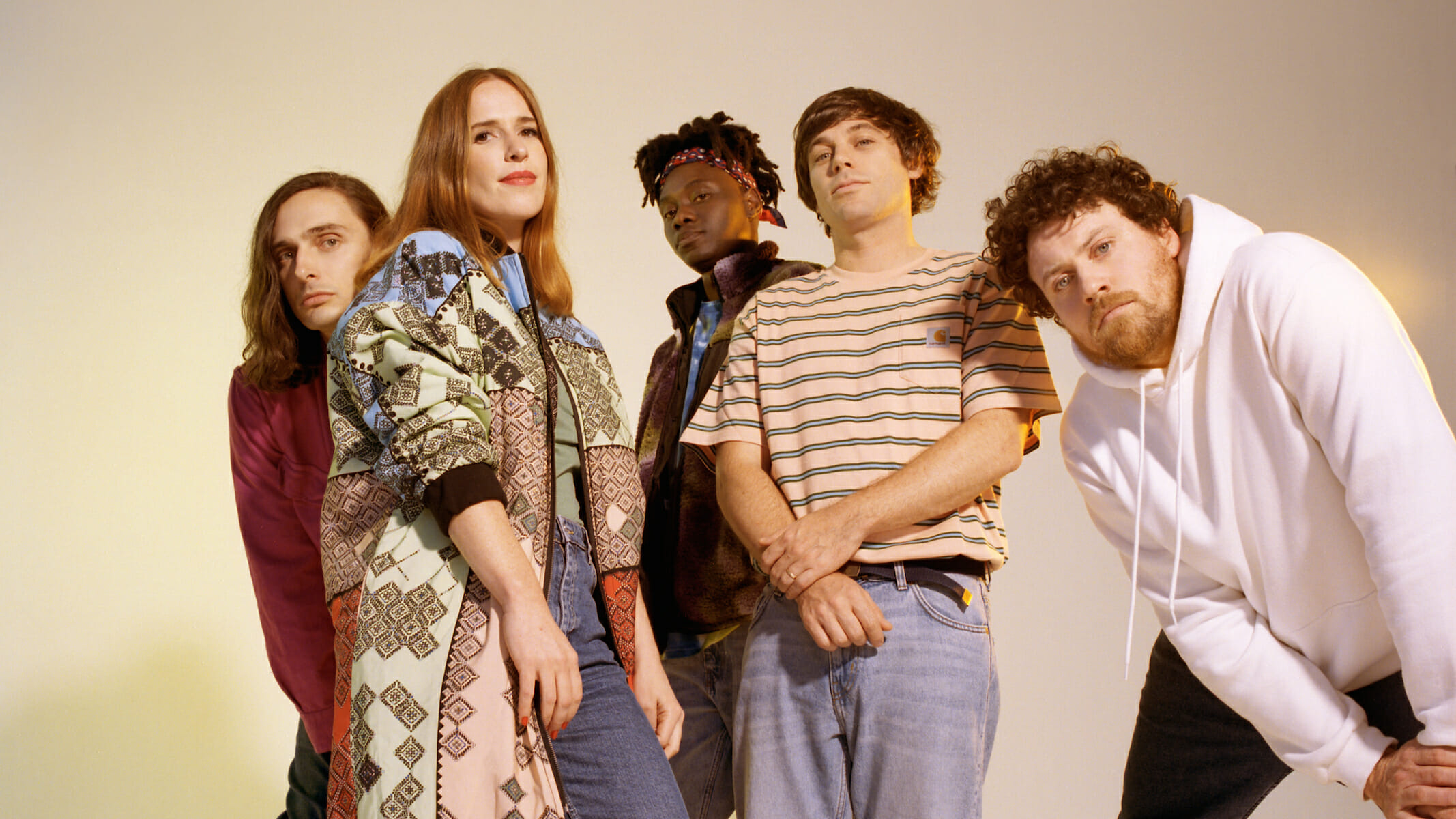Joseph Mount is an In-Demand Songwriter and Producer, But It’s Still Metronomy Forever
We sat down with the lead singer of the long-running English indie-pop band to talk about their sixth LP
Photo by Michele Yong
Joseph Mount, lead singer and mastermind behind long-running English indie-pop outfit Metronomy, has done his fair share of interviews over the years, and they don’t always turn out great. But he also has a great sense of humor, one that reveals the hilarity in even the dumbest questions.
“Sometimes I do interviews and people are like, ‘How did you think of your name?’ and I’m like, ‘That’s such a bad question that it’s kind of brilliant!’” he laughs when we meet up on the Lower East Side earlier this summer. “For an example: Bon Iver, someone who makes pretty intense, emotional music. Could you imagine sitting next to him going, ‘So, how did you come up with your name?’”
While our conversation never devolves into something resembling The Chris Farley Show, it’s clear Mount can see the humor in the mundane, a trait that shines throughout Metronomy’s new record, Metronomy Forever, out now via Because Music.
His inspirations for Metronomy’s sixth studio album come from some of the most bizarre and hypothetical places: Reminiscing about the woman he made a mixtape for decades ago, a girlfriend who’s ready to commit, the word “lately.” It’s a quirky record—like every Metronomy release—filled with sonic curveballs and cheeky lyrics. It’s one of the most fun and wacky dance records you’ll hear all year.
Paste recently caught up with Mount in New York City, where we delved into his work on Robyn’s Honey, his life as a father and how he tinkered with the songs on Metronomy Forever for months, only to realize they were better off as almost-demos. This conversation has been edited for length.
Paste: In an interview with The Independent from a few years ago, you talked about how when working on The English Riviera or Love Letters, you wanted to make a masterpiece. And then you said you wouldn’t try to do that anymore, and you took a different approach on Summer 08, and I’d assume this one as well. What is that difference in your mind?
Joseph Mount: With something like The English Riviera, that’s how I was thinking: “I want to make a classic album.” And I remember at the time, My Beautiful Dark Twisted Fantasy had come out just as I was mixing my record. I remember thinking, “This is so cool to try to do this, to try and craft something like that.” I guess the weird thing was with that record in the end, it became a lot of peoples’ favorite Metronomy record. At the same time, you realize from the process of making music that you can totally misfire by thinking like that. You can read everything wrong. And the fact that I tried to make a really great, classic album and people really liked it, it was kind of luck. [laughs] Of course, I remember with [Nights Out] thinking, “This is my masterpiece!” And of course, not so many people know about that one. I think what I realized was that music works in so many different ways and if you’re focusing on the thing at the end of it, the album, you’re kind of not focusing on the process. Now, especially having kids, I value the time I have to spend making music so much more than I have done before, so much more than I value the thing, the product. Some people will never actually have the product. Now I think of it more as an experience, rather than a product.
Most of this record is in first person. Is that you, or is it a character?
It always comes from a real idea, like a real thing, something that I sort of feel that I have some sort of authority on. Then from there, it could become anything really. It’s weird because historically, I’ve never been the kind of person who listens to lyrics or really cares that much. So for a long time, I wrote lyrics without really expecting them to be analyzed because I don’t do that. Over the years, I’ve realized people kind of expect there to be thought behind them and there is thought behind them, but I don’t sit down and write things out. I don’t work into lyrics like in a literary way. The song, “Ur Mixtape,” I used to make mixtapes to impress people. I specifically remember making a mixtape for a girl when I used to skateboard and she was a skater girl. Then I thought like, “Whatever happened to that tape? Has she still got it?” I got the idea of someone else falling in love with me because of the mixtape, but the wrong person. I thought it was a nice idea and that’s how it works with me: Trying to make stories out of memories.
Did other people’s questions ever change the way you write lyrics?
-

-

-

-

-

-

-

-

-

-

-

-

-

-

-

-

-

-

-

-

-

-

-

-

-

-

-

-

-

-

-

-

-

-

-

-

-

-

-

-








































